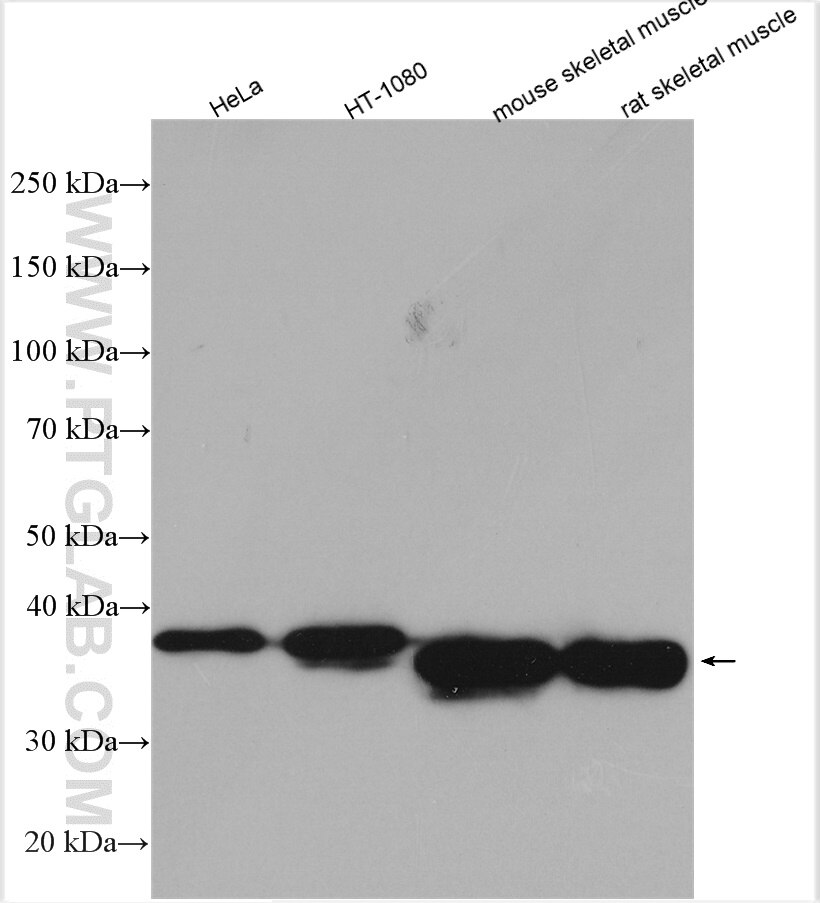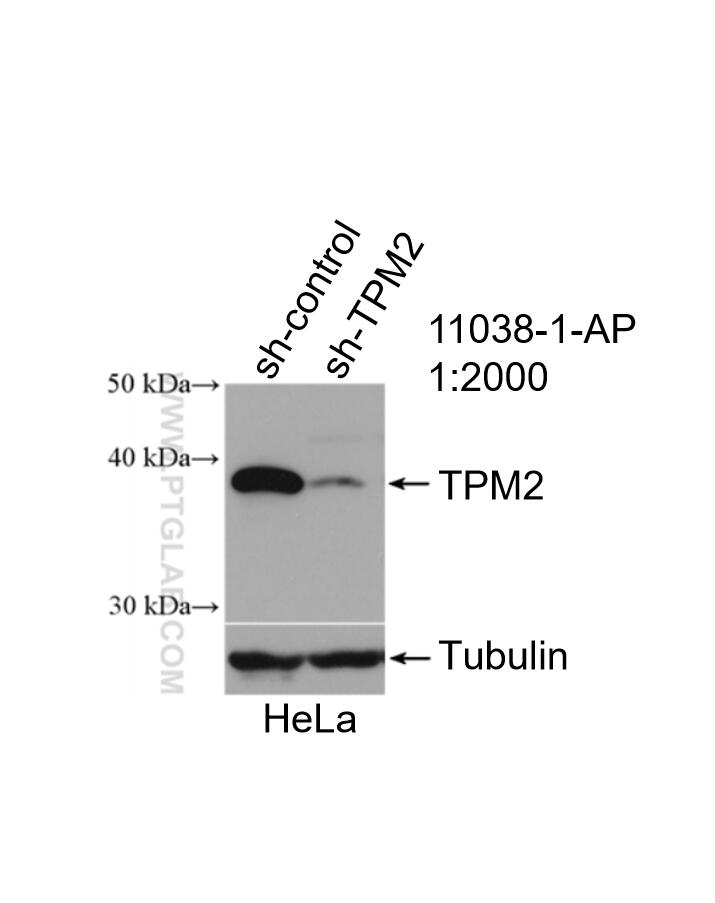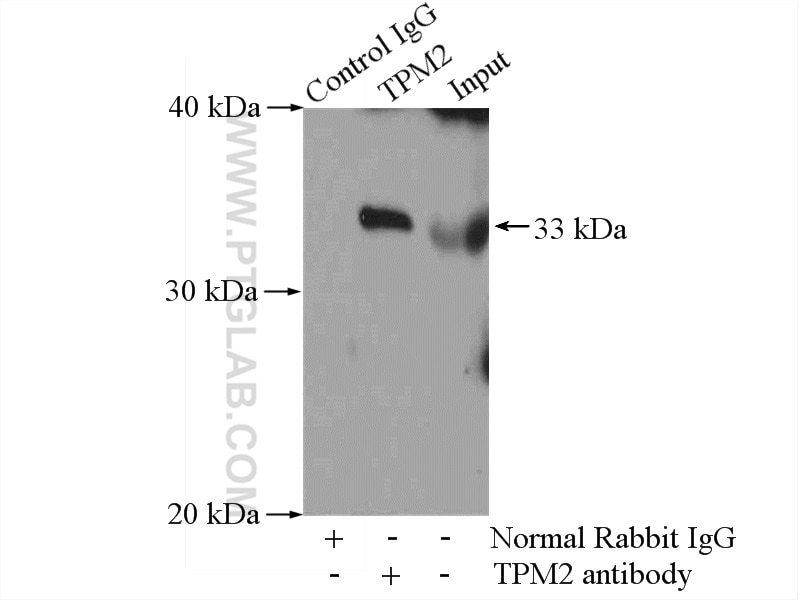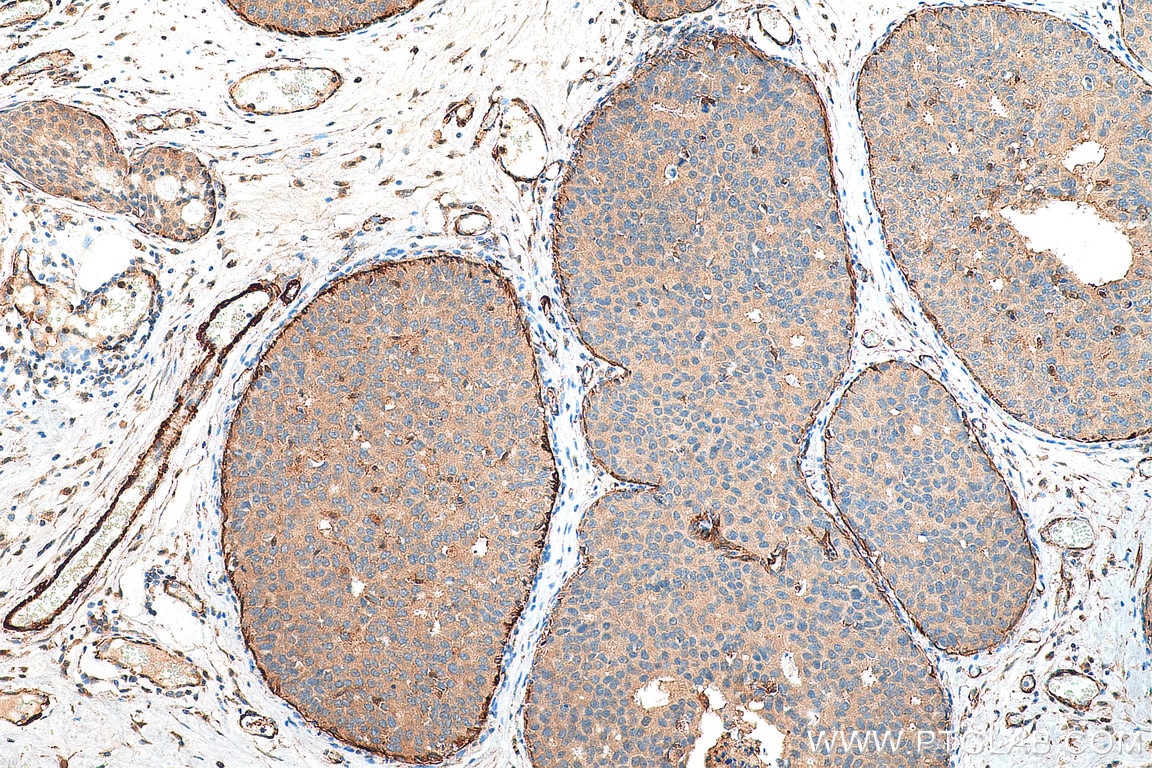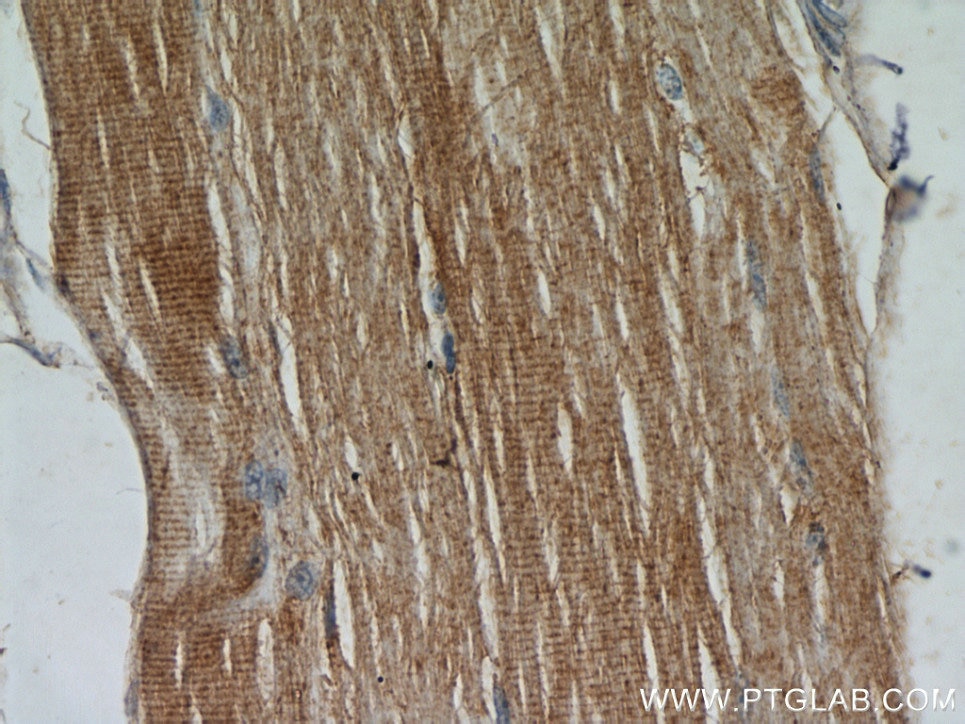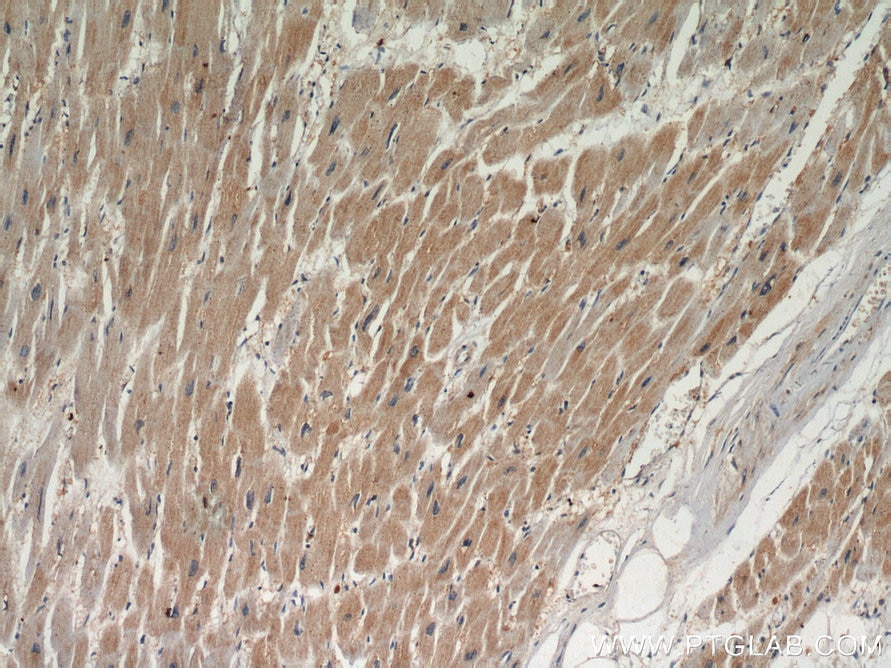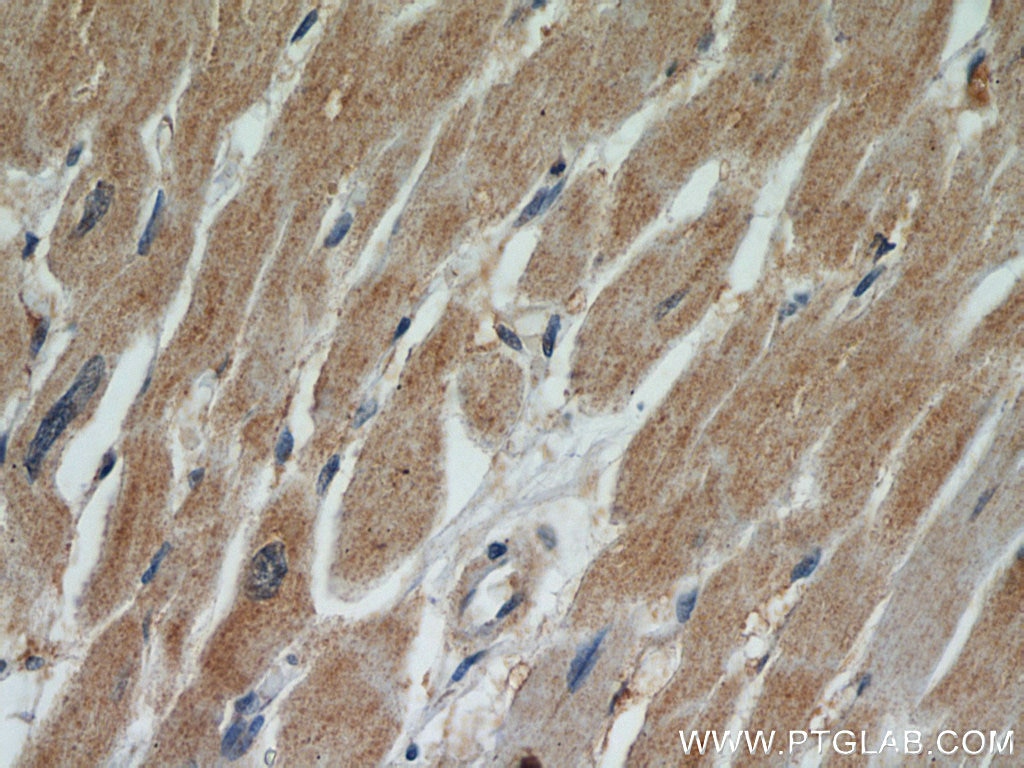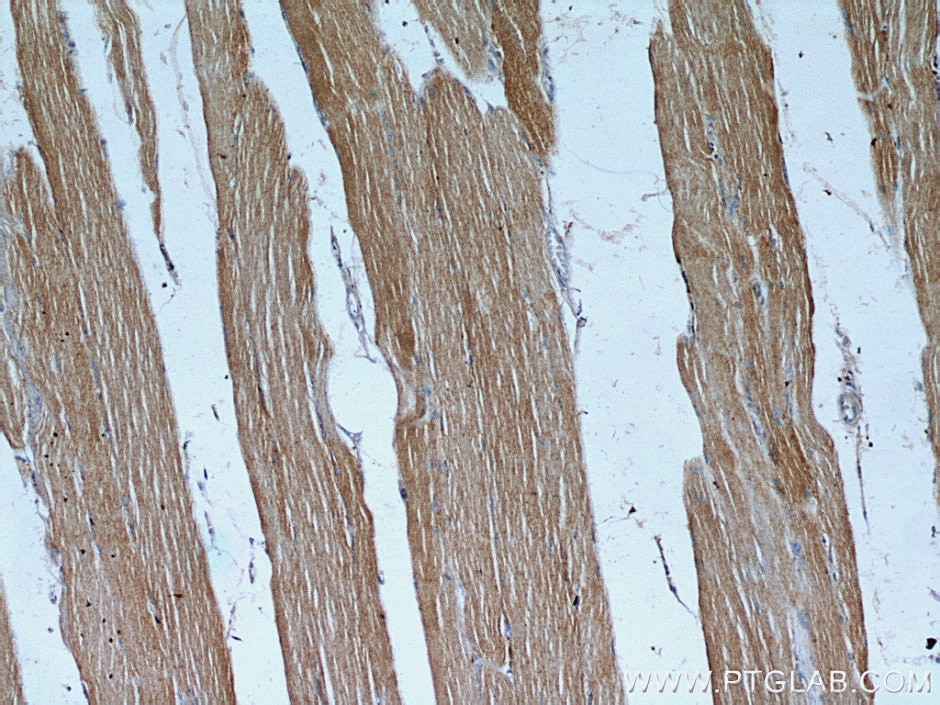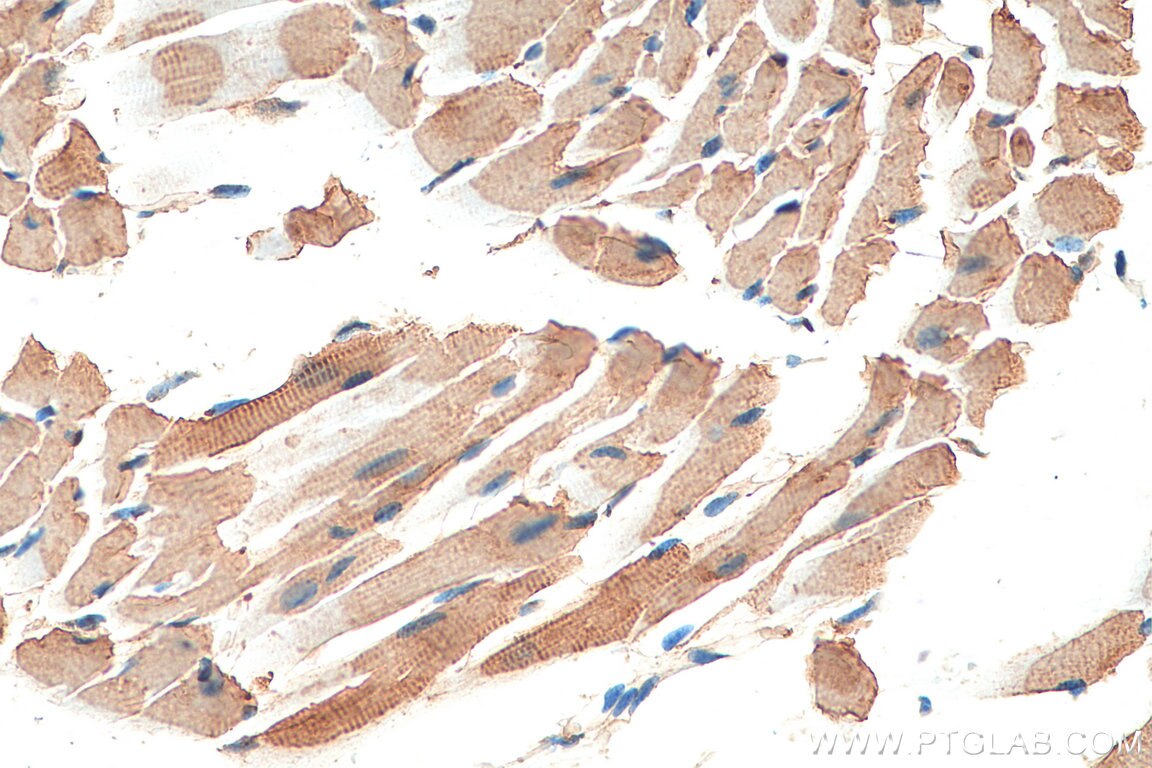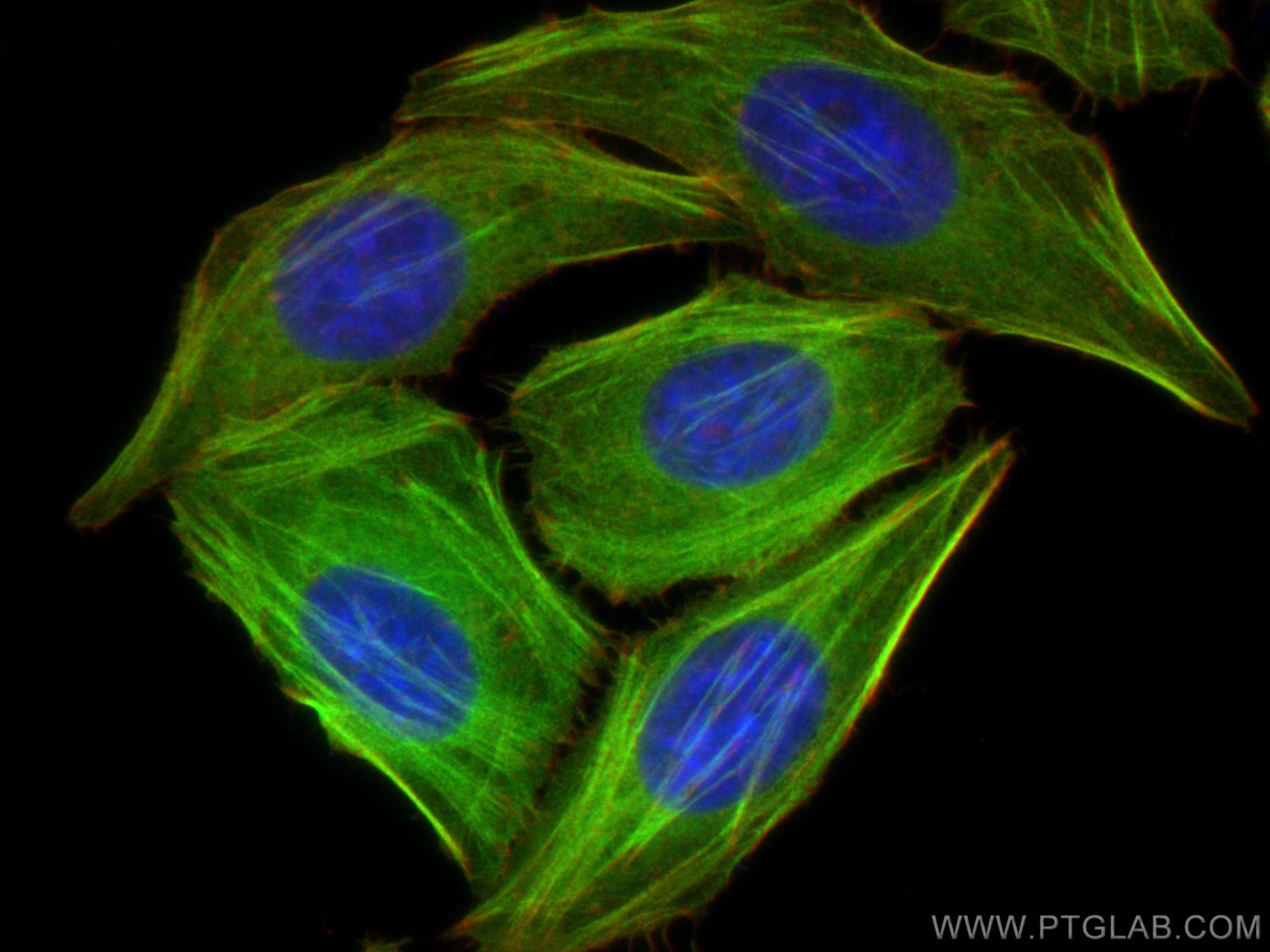Validation Data Gallery
Tested Applications
| Positive WB detected in | HT-1080 cells, HeLa cells, mouse skeletal muscle, rat skeletal muscle |
| Positive IP detected in | mouse skeletal muscle tissue |
| Positive IHC detected in | human breast cancer tissue, human heart tissue, human skeletal muscle tissue, mouse heart tissue Note: suggested antigen retrieval with TE buffer pH 9.0; (*) Alternatively, antigen retrieval may be performed with citrate buffer pH 6.0 |
| Positive IF/ICC detected in | HepG2 cells |
Recommended dilution
| Application | Dilution |
|---|---|
| Western Blot (WB) | WB : 1:1000-1:4000 |
| Immunoprecipitation (IP) | IP : 0.5-4.0 ug for 1.0-3.0 mg of total protein lysate |
| Immunohistochemistry (IHC) | IHC : 1:50-1:500 |
| Immunofluorescence (IF)/ICC | IF/ICC : 1:50-1:500 |
| It is recommended that this reagent should be titrated in each testing system to obtain optimal results. | |
| Sample-dependent, Check data in validation data gallery. | |
Published Applications
| WB | See 5 publications below |
| IHC | See 2 publications below |
| IP | See 1 publications below |
| ELISA | See 1 publications below |
Product Information
11038-1-AP targets TPM2 in WB, IHC, IF/ICC, IP, ELISA applications and shows reactivity with human, mouse, rat samples.
| Tested Reactivity | human, mouse, rat |
| Cited Reactivity | human, mouse, rat, rabbit |
| Host / Isotype | Rabbit / IgG |
| Class | Polyclonal |
| Type | Antibody |
| Immunogen |
CatNo: Ag1508 Product name: Recombinant human TPM2 protein Source: e coli.-derived, PGEX-4T Tag: GST Domain: 1-284 aa of BC011776 Sequence: MDAIKKKMQMLKLDKENAIDRAEQAEADKKQAEDRCKQLEEEQQALQKKLKGTEDEVEKYSESVKEAQEKLEQAEKKATDAEADVASLNRRIQLVEEELDRAQERLATALQKLEEAEKAADESERGMKVIENRAMKDEEKMELQEMQLKEAKHIAEDSDRKYEEVARKLVILEGELERSEERAEVAESRARQLEEELRTMDQALKSLMASEEEYSTKEDKYEEEIKLLEEKLKEAETRAEFAERSVAKLEKTIDDLEETLASAKEENVEIHQTLDQTLLELNNL 相同性解析による交差性が予測される生物種 |
| Full Name | tropomyosin 2 (beta) |
| Calculated molecular weight | 33 kDa |
| Observed molecular weight | 29-33 kDa |
| GenBank accession number | BC011776 |
| Gene Symbol | TPM2 |
| Gene ID (NCBI) | 7169 |
| RRID | AB_2205660 |
| Conjugate | Unconjugated |
| Form | |
| Form | Liquid |
| Purification Method | Antigen affinity purification |
| UNIPROT ID | P07951 |
| Storage Buffer | PBS with 0.02% sodium azide and 50% glycerol{{ptg:BufferTemp}}7.3 |
| Storage Conditions | Store at -20°C. Stable for one year after shipment. Aliquoting is unnecessary for -20oC storage. |
Background Information
TPM2, also named as TMSB, belongs to the tropomyosin family. It binds to actin filaments in muscle and non-muscle cells. TPM2 plays a central role, in association with the troponin complex, in the calcium dependent regulation of vertebrate striated muscle contraction. In non-piamuscle cells, TPM2 is implicated in stabilizing cytoskeleton actin filaments. Defects in TPM2 are the cause of nemaline myopathy type 4 (NEM4) and distal arthrogryposis type 1 (DA1).
Protocols
| Product Specific Protocols | |
|---|---|
| IF protocol for TPM2 antibody 11038-1-AP | Download protocol |
| IHC protocol for TPM2 antibody 11038-1-AP | Download protocol |
| IP protocol for TPM2 antibody 11038-1-AP | Download protocol |
| WB protocol for TPM2 antibody 11038-1-AP | Download protocol |
| Standard Protocols | |
|---|---|
| Click here to view our Standard Protocols |
Publications
| Species | Application | Title |
|---|---|---|
Bone Res Impairment of rigidity sensing caused by mutant TP53 gain of function in osteosarcoma | ||
Cell Biosci TPM2 attenuates progression of prostate cancer by blocking PDLIM7-mediated nuclear translocation of YAP1 | ||
Cancer Prev Res (Phila) Stool Protein Mass Spectrometry Identifies Biomarkers for Early Detection of Diffuse-type Gastric Cancer | ||
FEBS J Myopathy-linked mutations in TPM2 and their impact on troponin-mediated regulation of actomyosin contractility | ||
PLoS One Proteomic changes in the hippocampus of large mammals after total-body low dose radiation | ||
Leukemia Single-cell transcriptomics of pediatric Burkitt lymphoma reveals intra-tumor heterogeneity and markers of therapy resistance |

